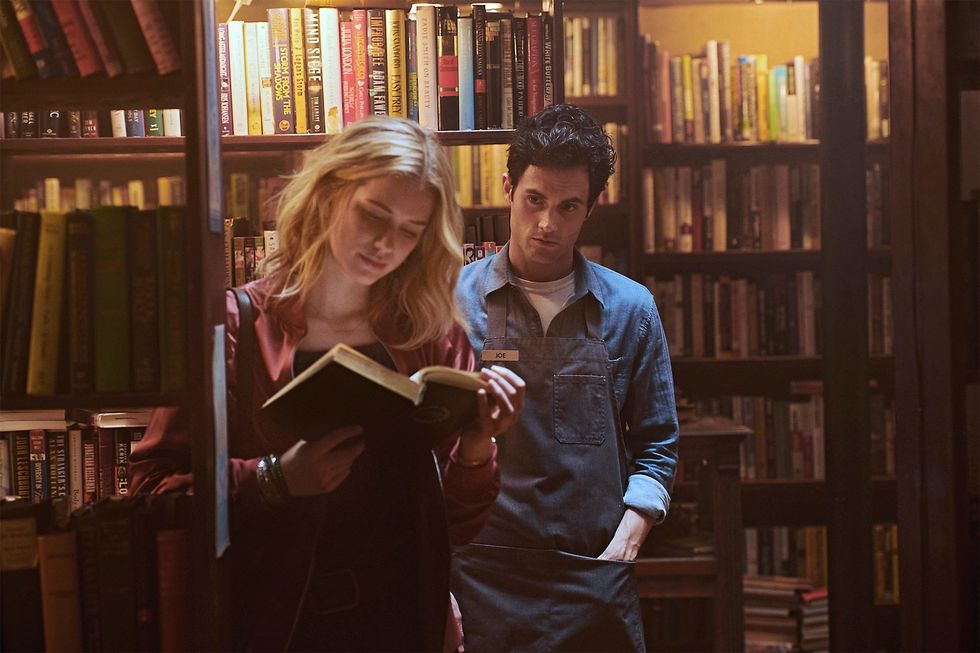Netflix's recent TV release "YOU" starring Penn Badgley as a psychopathic serial lover, and Elizabeth Lail as his chosen lover, follows the life and narration of Joe Goldberg; your average American, working in a small, quaint bookstore in the bustle of New York. From the beginning, we see a look into his deranged mindset; how Lail's character, Beck, first encounter had set him over the edge into a series of actions all to help better her life. These actions, throughout its first season snowball from stalking to kidnapping, and ultimately, murder of those around Beck deemed unworthy of her.
Not only is the audience taken into the life of Joe Goldberg, but we hear into the thought processes and see the makings of a murderer, from beginning to end. Sure, at times unsettling; but overall, absolutely brilliant.
As the audience, Joe narration places his thoughts into our own. We understand his choices, his actions, his pre-planning, and the depth of consequences and arguments held between him and his peers. It's this unique combination of choices made by the show's directors that had allowed it to become a sensational hit both on its original screen, Lifetime and on Netflix.
I initially heard of this show by word of mouth; recommendations by friends and reactions that initiated full day binges. Out of curiosity, I dipped into the first episode, and found myself too falling down its whirlwind of plot twists; I was hooked on the story's development, and like others, struggling to identify who I was essentially "rooting" for to win: Beck, the messy, upcoming writer turned puppet by her ungrateful friends, or Joe, the one cleaning up her life, though through unethical means.
Addictive is too weak of a word to describe this series, as is its description on Netflix: "A clever bookstore manager relies on his savvy Internet know-how to make the woman of his dreams fall in love with him."
Insinuating Joe simply has a knack for technology is the biggest understatement of the year. Joe physically stalks Beck from as soon as she wakes up to the moment where she finally falls asleep. He tracks her day to day life using her own phone (which he stole) as a way to have access to all her social media, family, friends and most importantly, life within his hands. Using this information, he purposefully plants himself within her life, with "run-ins" and small "coincidences," until they are finally together as lovers.
To the outside audience, this knowledge only raises more eyebrows. How could Joe, after all the bad things he had done, be the one everyone wants to root for? This is the fascination behind behind this show. We're so used to thinking that the romantic comedy should follow a romantic comedy script — the protagonist and his/her lover using dramatic, romantic gestures to finally fall in love and be happy. When the romantic gestures are altered, such as kidnapping and killing Beck's ex-boyfriend for simply not cherishing her, our brains realize this deviation but insist on still still sticking with the generic romantic story.
Compounded with Joe's genuine philanthropic relationship with Paco, the little boy of his abusive, toxic neighbor's relationship, who Joe educates using his love for books and places himself as his father figure, as an audience, we know that deep down, Joe has a good heart. He acts for others when they can't for themselves, but unethically.
In the end, Joe does become the villain protagonist, but we understand that his dramatic actions are all to become closer to Beck, as well as Beck becoming closer to Joe. We can't help but root for their success, even if it is a road of bloodshed — an absolutely fascinating concept implemented beautifully in one season.












